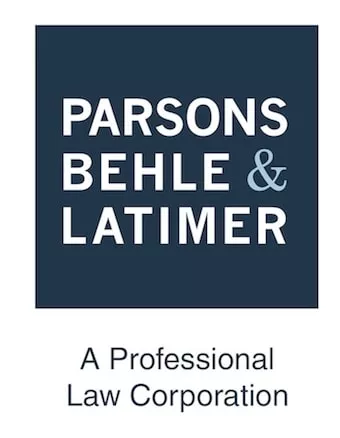- within Tax topic(s)
- with Finance and Tax Executives
- with readers working within the Advertising & Public Relations and Banking & Credit industries
China has become one of Utah's most important trade partners. While more and more Utah businesses are doing business in China, many neglect to protect their brands in that country, leaving them exposed to malicious trademark squatting-a situation in which a person other than the original brand owner knowingly registers a trademark with the intent of holding it for ransom or profiting from the brand owner's goodwill.
China is a first-to-file jurisdiction, meaning that the first person to file a trademark will be awarded exclusive rights in that mark. This policy provides squatters with an opportunity to rush to register foreign trademarks before the original brand owners have an opportunity to do so. The squatter can then leverage the bad faith registration to extort a payment from the true brand owner. If the brand owner refuses to pay, the squatter will threaten the brand owner with a lawsuit to prevent the brand owner from doing business in China, whether that is manufacturing goods in China for export or selling branded goods within China.
Until recently, China's trademark laws did not include an explicit and clear requirement for use in commerce. As a result, applicants filed thousands of applications with the intent of brokering the registrations, not to use the marks in commerce. For example, one company filed nearly 6,000 applications in one day, and there are reports of one individual hoarding more than 100,000 registrations. China recently revised its trademark laws to combat these bad faith trademark registrations. The amendments provide the Chinese Trademark Office with the ability to reject applications that are not made for the purpose of using the trademark. But China remains a hotbed for trademark squatting.
Some brand owners neglect registration in China because they assume that a US trademark registration will provide some protection in China. But that is not the case. A US registration does not provide any rights to use a mark in China. Other brand owners forgo registration in China because they believe squatters are unlikely to target their unregistered marks. But squatters are always looking for new victims. And they do not limit their sights to large corporations like Starbucks, Apple, and Tesla, each of which has faced off against trademark squatters in China. The cost of registering a mark in China is minimal and squatters will go after almost any mark if there is any chance of scoring a payoff from a brand owner.
While new revisions to China's trademark laws might place brand owners in a better position to fight bad faith registrations, it remains difficult to oppose an application or invalidate a registration based on bad faith. Traditionally, the Chinese Trademark Office has adopted a narrow interpretation of what qualifies as bad faith. Unless you can prove that the squatter is a business partner (i.e., you have a contractual relationship with the squatter) or a serial squatter (i.e., the squatter has filed to register more trademarks than it could possibly use), an opposition or invalidation action is unlikely to be successful. With the new laws, the Chinese Trademark Office may be more willing to consider other factors, but it remains unclear whether the amendments will significantly reduce the heavy burden of proving bad faith. If an invalidation or opposition action is unsuccessful, the brand owner is faced with buying the registration at an extortionate cost, changing its brand or ceasing to do business in China.
One of the best ways to prevent trademark squatting in China is to register your mark in that country as early as possible. If you have any inclination that you might do business there, even if you are only manufacturing your products with no intent to sell there, you should file to register your trademarks. If you file for registration in China within six months of your US trademark application, you can claim your US priority date as your priority date in China. If it has been more than six months since your US filing date, your filing date in China will be your priority date. In either case, your goal should be to file an application to register your mark before squatters can do so. When you register your mark, you should also consider registering the translation and transliteration of your mark.
China's amended trademark laws specifically allow defensive trademark filings to preserve space for future business, so when you file an application, think broadly. Consider adopting a wider scope of goods and services that target the classes that surround your core business. Include not only the goods and services that you currently offer, but also any that you might offer in the future. Take the kitchen sink approach; more is better. But be prepared to defend your registration with evidence to justify the defensive filing.
While the trademark landscape and regulations continue to evolve in China, strategic registration and enforcement plans must also evolve. For those Utah businesses that currently manufacture or sell products in China, or intend to do so in the future, the best defense is a good offense. Brand owners should file trademark applications early and be consistent and diligent in monitoring their intellectual property in order to maximize those assets.
Originally published by Utah Business Magazine.
The content of this article is intended to provide a general guide to the subject matter. Specialist advice should be sought about your specific circumstances.



